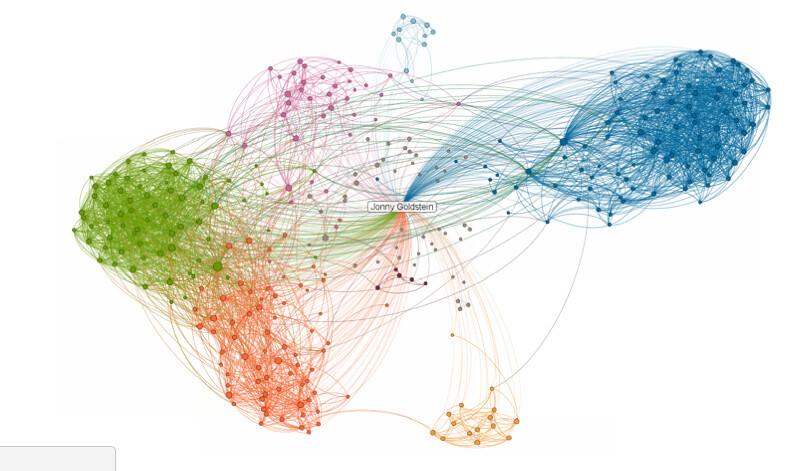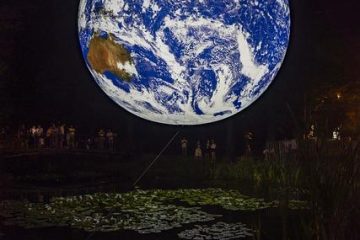In a world brimming with mysteries and marvels, the Gaia hypothesis stands as a beacon of interconnectedness and awe. Delving into the intricate web of relationships between Earth’s organisms and their environment, this hypothesis offers a profound perspective on the planet as a living, breathing entity. Join us on a journey through the realms of ecological harmony and symbiotic balance as we unravel the importance of the Gaia hypothesis in shaping our understanding of the world we call home.
Table of Contents
- Understanding Gaia Hypothesis: A Paradigm Shift in Ecological Thinking
- Gaia Hypothesis and its Implications for Climate Change
- The Interconnectedness of Life: Exploring Gaia Hypothesis in Ecosystem Management
- Practical Applications of Gaia Hypothesis for Sustainable Living
- Q&A
- Concluding Remarks
Understanding Gaia Hypothesis: A Paradigm Shift in Ecological Thinking
Since its inception, the Gaia Hypothesis has sparked a profound shift in how we perceive the intricate web of life on Earth. This revolutionary concept proposes that our planet functions as a single, self-regulating organism, where all living and non-living elements interact to maintain conditions suitable for life.
By embracing the Gaia Hypothesis, we begin to view Earth not just as a collection of isolated ecosystems but as a deeply interconnected system where each component plays a vital role in sustaining life. This perspective challenges traditional notions of ecology and encourages us to appreciate the dynamic harmony that exists between all forms of life, from the smallest microorganisms to the largest forests and oceans.

Gaia Hypothesis and its Implications for Climate Change
The Gaia Hypothesis, proposed by James Lovelock, suggests that the Earth functions as a self-regulating system, maintaining conditions necessary for life to thrive. This concept views the Earth as a single living organism where all living and non-living elements interact to create a balanced and stable environment. The implications of this hypothesis for climate change are profound, as it highlights the interconnectedness of all components on Earth.
Key Implications:
- Interconnected Ecosystems: The Gaia Hypothesis underscores the intricate relationship between various ecosystems on Earth, emphasizing how changes in one part can have ripple effects across the globe.
- Climate Regulation: By considering the Earth as a self-regulating entity, the hypothesis prompts us to reevaluate our role in influencing climate patterns and the importance of preserving the delicate balance of our planet.
Gaia Hypothesis Table:
| Earth as a System | Implications for Climate Change |
|---|---|
| Self-Regulating | Emphasizes the need for sustainable practices to maintain ecological equilibrium. |
| Interconnected | Illustrates how changes in one area can impact the entire planet. |
By understanding the , we can better appreciate the fragility and resilience of our planet. It serves as a reminder of our responsibility to nurture and protect the natural systems that support all life on Earth, encouraging us to adopt more eco-conscious behaviors and policies for a sustainable future.
The Interconnectedness of Life: Exploring Gaia Hypothesis in Ecosystem Management
The Gaia hypothesis, originating from the visionary mind of James Lovelock, proposes that our planet functions as a self-regulating organism where living organisms and their inorganic surroundings form a complex system that maintains the conditions necessary for life. This perspective underscores the intricate interconnectedness of all life forms on Earth and the environment they inhabit. Embracing the Gaia hypothesis can revolutionize the way we perceive and interact with nature, influencing our approach to ecosystem management.
By recognizing the symbiotic relationship between living beings and the Earth itself, we can better appreciate the importance of preserving biodiversity and ecological balance. This holistic view encourages us to nurture ecosystems rather than exploit them, fostering resilience and sustainability. Integrating the principles of the Gaia hypothesis into ecosystem management practices can lead to innovative strategies that prioritize harmony between humans and nature, paving the way for a more harmonious coexistence with the planet we call home.
Practical Applications of Gaia Hypothesis for Sustainable Living
The Gaia hypothesis offers a fascinating perspective on how interconnected our planet’s systems are and how they self-regulate to maintain life. When we apply this concept to sustainable living practices, it opens up a world of possibilities for creating harmony between humans and the environment. Here are some practical applications of the Gaia hypothesis for sustainable living:
Harnessing Renewable Energy Sources: Embracing the Gaia principle can inspire us to rely more on renewable energy sources like solar, wind, and hydroelectric power. By utilizing these resources, we reduce our dependence on fossil fuels and support the natural balance of the Earth’s systems.
Promoting Biodiversity: Embodying the spirit of Gaia means recognizing the importance of biodiversity in maintaining ecosystem health. By preserving diverse habitats and supporting wildlife conservation efforts, we contribute to the resilience of the planet as a whole.
| Sustainable Action | Description |
|---|---|
| Composting | Turning organic waste into nutrient-rich soil. |
| Rainwater Harvesting | Collecting rainwater for household use. |
These are just a few examples of how the Gaia hypothesis can guide us towards a more sustainable way of living, where we work in harmony with the Earth’s natural systems for the benefit of all.
Q&A
Q: What is the Gaia Hypothesis and why is it important?
A: The Gaia Hypothesis posits that the Earth is a self-regulating system where living organisms interact with their inorganic surroundings to form a complex, interconnected system. This idea suggests that the Earth functions as a single organism that maintains conditions necessary for life. The importance of the Gaia Hypothesis lies in its revolutionary perspective on the interconnectedness of all life forms and the planet itself. It highlights the delicate balance and interdependence between living organisms and their environment, emphasizing the need for sustainable practices to preserve our planet for future generations.
Concluding Remarks
As we conclude our exploration of the Gaia Hypothesis and its significance in our understanding of Earth as a living and interconnected system, it becomes clear that viewing our planet as a self-regulating organism can offer valuable insights into how we interact with our environment. By recognizing the delicate balance of ecosystems and the impact of human activities on the Earth, we are inspired to take actions that promote sustainability and harmony with nature. Let us continue to nurture our planet, for in doing so, we nurture ourselves and future generations. Embrace the interconnectedness of all life on Earth, and let us strive to be stewards of this beautiful and intricate Gaian system.



0 Comments